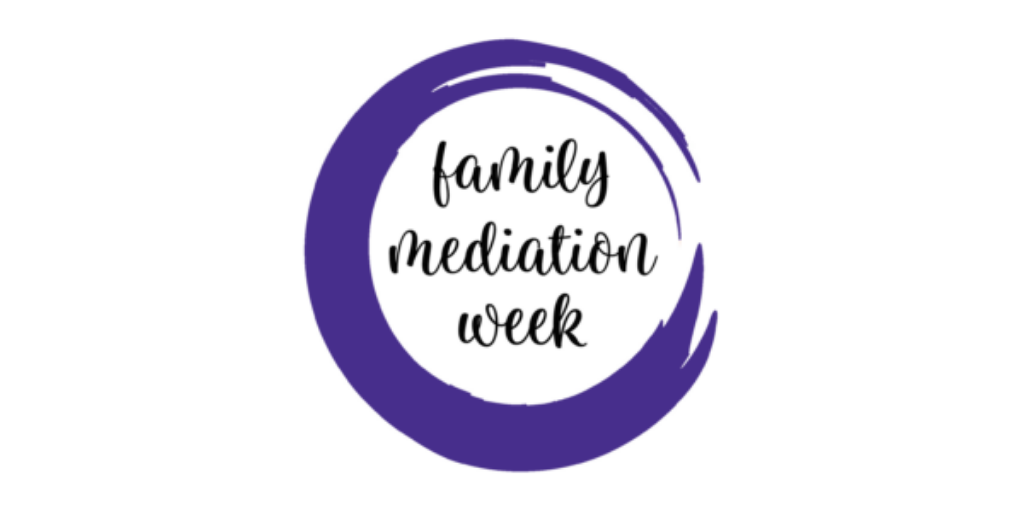Family Mediation Week 17-21 January 2022

Family Mediation Week 17-21 January 2022
The Family Mediation Week organised by the Family Mediation Council (FMC) will run from 17 -21 January. The aim of this is to raise awareness of the importance of mediation and how this can support parties going through a relationship breakdown to facilitate discussions around parenting, how to approach the division of the finances and the divorce and separation process. Below is a reminder of what mediation does and how it may support you. During Family Mediation Week there are lots of activities open to professionals and the public that may be of interest visit https://resolution.org.uk/news/resolution-supports-family-mediation for more information.
What is mediation?
Mediation is forum where parties meet with a mediator privately in a number of meetings to discuss their situation and engage in productive discussions to overcome any issues preventing them reaching an agreement. These issues can range from the timings around a house sale or the how to divide up the net equity or pension, to structuring the agreement for children’s arrangements and agreeing the location of a new school or home. The beauty of mediation is that these sessions are for the parties to use and adapt to meet their own needs. This does not happen when you are engaged in solicitor correspondence or have to attend a Court hearing where the structure is very prescriptive.
It is usually for one or both parties to attend a MIAMS (mediation and information assessment meeting) first to consider the mediation process and how suitable this would be for them.
A mediator is completely impartial and is not there to provide you with legal advice. Their role is to support and manage your discussions to try to facilitate the parties reaching a resolution. A mediator can provide you both with information within the course of the mediation that may assist parties in overcoming obstacles. For example, a mediator can explain how the Court process works or how a Judge may approach a certain issue that is causing discussions to halt. If each party has a solicitor, they can speak to their solicitors before or after the mediation to get any advice they need to allow discussions to progress.
If an agreement is reached, then the mediator will draft a Memorandum of Understanding (MOU) reflecting the agreement reached and rational behind this. It is this document that a solicitor then uses to draft a legally binding agreement (Consent Order) which is then filed with the Court for approval.
How does it work?
Once you have chosen a mediator you can arrange to attend a MIAMS separately, or if you both wish to embark upon mediation you can just arrange a first session with a mediator. Either way the mediator will usually send you some preliminary paperwork to understand more about your specific circumstances.
Mediation can be just the parties and a mediator over a course of sessions until an agreement is reached. You can arrange co mediation with 2 mediators for each session to support the parties. This can give balance to a mediation and assist where there is high conflict or very emotive issues to address.
Parties can opt for shuttle mediation if one party feels that they do not want to be in the same room with the other party. In my experience this is less effective but can be helpful where one or both parties feel uncomfortable sitting face-to-face but do not want to file an application with the Court.
Mediation can also be supported by solicitors if there is again high conflict or complex issues so that they are on hand to advise their cleint’s personally through the mediation as and where necessary.
Why is mediation so important?
Court proceedings have their place and are often necessary. However, in a family situation where parents are separating and particularly where children are involved, issues can be sensitive, and emotions often run high mediation is more effective and conciliatory. This is often much better for parents who feel a sense of coming together for the benefit of the children who they will have to co-parent for many years to come.
This is a better forum to at least attempt to resolve matters in an environment that is more relaxed yet confidential. Where parties have freedom to discuss their options together with the support of a third party (the mediator) who can among other things manage each session and make sure focus remains on the central issues.
Mediation is less costly than instructing solicitors and attending a Court hearing. Costs are naturally an issue that is significant to anyone embarking upon a separation or divorce, especially where funds are limited.
Attending a MIAM is also a prerequisite before a party files an application with the Court unless there has been domestic violence within a relationship. This will prevent parties having to engage in mediation together.
Speak to our Family Law specialists
If you have any questions surrounding mediation, or are considering this yourself then please do contact Kate Ryan at IBB.
To contact the team please email familylaw@ibblaw.co.uk or call 03456 381 381.
